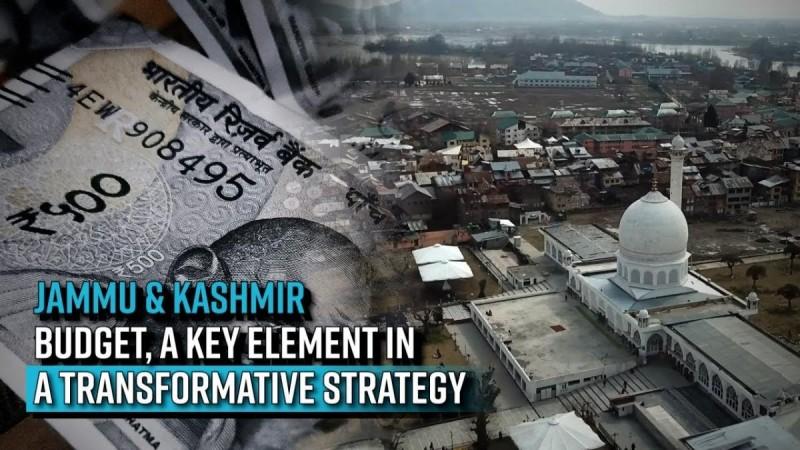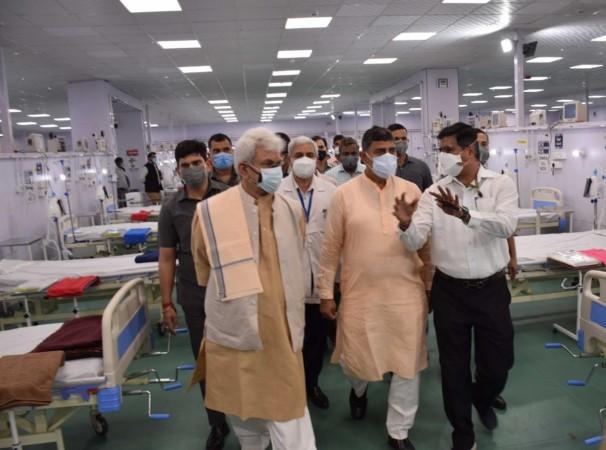To strengthen democracy at a grassroots level and ensure peoples' participation in governance, the three-tier Panchayati Raj system has been established in the Union Territory of Jammu and Kashmir for the first time following free and fair elections for all three tiers besides devolving adequate funds.
In a written reply to the question of BJP member Rakesh Sinha, Minister of State in the Ministry of Home Affairs Nityanand Rai said on Wednesday that the Panchayats play an important role in the development of Jammu and Kashmir.
"Flagship schemes such as Mahatma Gandhi National Rural Employment Guarantee Scheme, Pradhan Mantri Awaas Yojana-Gramin, Swachh Bharat Mission-Gramin, etc. are implemented through Panchayati Raj Institutions (PRIs)", he said.

The development schemes are effectively monitored through the e-GramSwaraj portal, which was launched by Prime Minister on National Panchayati Raj Day, 24th April 2020.
"Till 26/07/2022, 98621 works have been taken up under 14th Finance Commission funds, out of which 84,750 works have been completed. An expenditure of Rs. 13,339.00 crores has been incurred on these works", the Minister said.
Exclusive scheme for the industrial growth of J&K
According to the ministry, a new central sector scheme has been notified on 19/02/2021 for the Industrial Development of Union Territory of Jammu & Kashmir, with an outlay of Rs. 28,400 crores.
Jammu and Kashmir has received investment applications of more than Rs 54,000 crore. Out of which projects worth more than Rs 36,000 crore have been allotted industrial land.

"The progress of 53 projects being implemented at Rs. 58,477 crores by 15 ministries in the UT of Jammu and Kashmir under the Prime Minister's Development Package-2015 in sectors such as roads, power, health, education, tourism, agriculture, skill development, etc. has been accelerated. 29 projects have been completed/ substantially completed and the remaining projects are at an advanced stage of progress.
Under the languishing projects programme, 1,193 projects worth Rs 1,984 crores were completed, including five projects which were incomplete for more than 20 years, 15 projects for more than 15 years, and 165 projects for more than 10 years.
Steps being taken for the development of J&K after the abrogation of Art 370
- 145 Centrally Sponsored Schemes, including 19 flagship programmes are under implementation in the UT of J&K.
- 100 % saturation has been achieved in 17 Individual beneficiary centric schemes, including Saubhagya, Ujala, Ujjwala, and Indradhanush schemes.
- The construction work of 17601 km of road under Pradhan Mantri Gram Sadak Yojna (PMGSY) has been completed up to March 2022, which has connected 2074 places. During 2020-21 and 2021- 22, J&K ranked 3rd at the national level in terms of road length achieved under PMGSY.
- Banihal tunnel and Chenani-Nashri tunnel were completed and opened to traffic. Rambagh flyover in Srinagar was completed and opened to the public.
- To connect Kashmir with train, the Udhampur-Katra section, Banihal-Quazigund section, and Quazigund-Baramulla section have been commissioned.
- The international flight from Srinagar to Sharjah has been started on 23.10.2021. In addition, night flights from Jammu and Srinagar have also been started.
- Two new AIIMS, 07 new medical colleges, 02 State cancer institutes, and 15 nursing colleges have been taken up/operationalized recently.
- An intake capacity of 854 seats was added, which includes 600 MBBS, 50 PG courses, 26 BDS, 38 MDS, and 140 DNB.
- In the last 2 years, power projects for about 3000 MW capacity revived.
- Srinagar - Leh transmission line and Srinagar- Alusteng - DrassKargil – Leh transmission system completed and dedicated to the public.
- More than 2500 hectares area covered under high-density plantations. The scope of the high-density plantation scheme for Apple has been expanded to include Mango, Litchi, Cherry, Walnut, etc.
- Kashmiri Saffron has been given the Geographical Indication (GI) tag.















